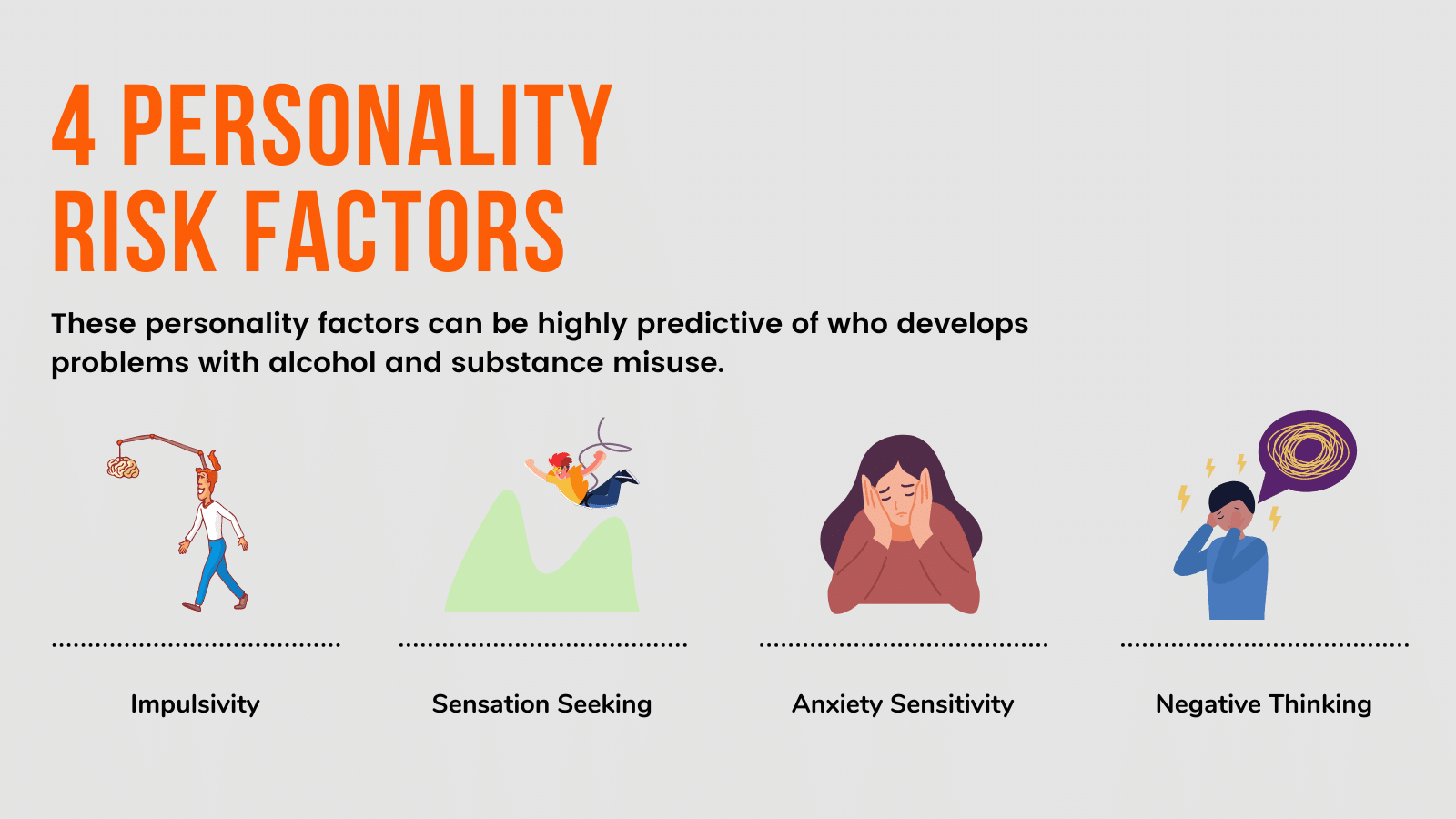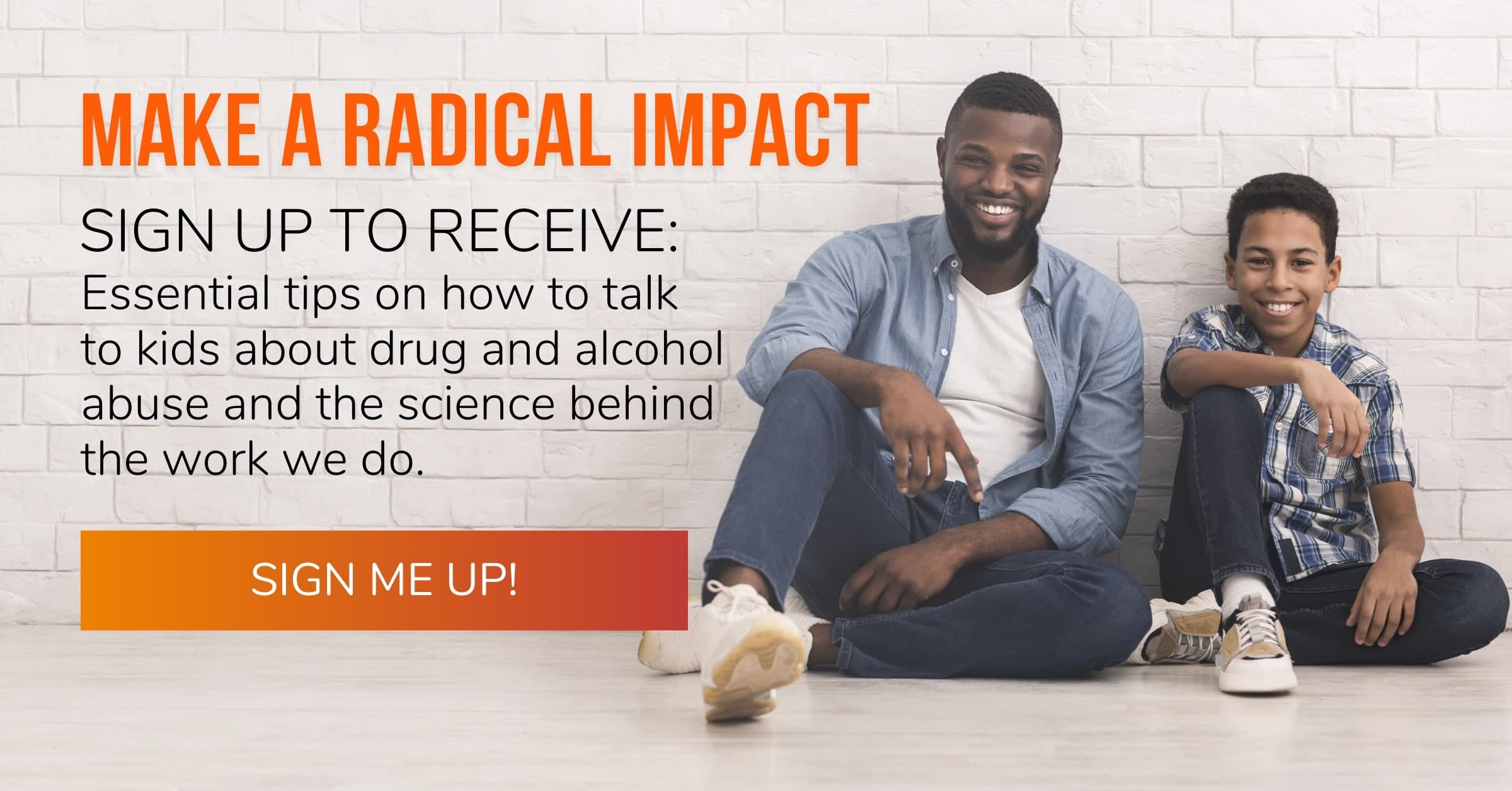Are Some Kids Especially Vulnerable to Substance Abuse?
This article is the first in a 5-part series on the 4 Personality Risk Factors.
Sometimes it’s easy to see why someone falls into substance use issues. You look at their life full of hardship or trauma and match that with their tumultuous upbringing and dysfunctional family and think to yourself, “Hey — no wonder.”
But with some people, it doesn’t quite add up. Did something happen that we aren’t aware of? Do they have a genetic predisposition?
Well, there’s been some fascinating research revealed in recent years that sheds light on what makes one person more vulnerable to substance use issues than others, and it has to do with their personality.
Dr. Patricia Conrod from Quebec, Canada, has led a research team and has demonstrated that personality factors can be highly predictive of who develops problems with alcohol and substance misuse.
There are four personality types, particularly, that seem to have a higher correlation with struggles, and there’s a personality profile that can be administered to students to help them better understand themselves.
Below are the four personality types that have a uniquely higher risk factor:
1. Impulsivity
An impulsive person acts with their gut on the spur of the moment without thinking much about the consequences of their actions. It might remind you of the kid who has behavior issues in class — the one who can’t help but cracking the funny joke or getting too physical with other kids on the playground. Read more about impulsivity here.
2. Sensation Seeking
A sensation seeker craves excitement and often acts without thinking clearly about the consequences. You might be reminded of the kid who’s a risk-taker outside of school in the activities they pursue — the one who shows videos of herself skateboarding down a hill without a helmet. Read more about sensation seeking here.
3. Anxiety Sensitivity
The assessment describes someone with this type as a person who has stressful physical sensations and worries about anxious feelings. Read more about anxiety sensitivity here.
4. Negative Thinking
A person who often feels sad, guilty, and irritable is susceptible to negative thinking. This is often a more difficult personality to observe since thinking happens underneath the surface. But, adults can usually detect these kinds of thoughts based on their facial expressions or comments they overhear. Read more about negative thinking here.
What does this mean for parents and educators?
First, it’s helpful to consider who the kids are in our lives and how best to care for them. Also, it speaks to the importance of providing opportunities for kids to grow in self-awareness. Everyone deserves an opportunity to get to know themselves, and it’s especially helpful when adults are open and honest about themselves and their own lives, first.
For educators, we believe it’s important to carve out time in the school day to guide students through thoughtful self-reflection. There has to be a link between their social-emotional health and their academics because students come to school as their full selves.
Additionally, parents can commit to engaging in honest discussions with their kids about their personality tendencies, acting as neutral mirrors to help them understand themselves. Knowledge, in many ways, leads not only to power but also self-awareness as a foundation for healthy choices.
In the next few articles, we dig in more to each personality type and how to guide kids well to make the healthiest, wisest choices in spite of their unique challenges. Read the next article in our 5-part series on the first Personality Risk Factor: impulsivity.
The 4 Personality Risk Factors Table of Contents:



